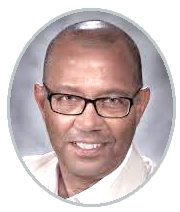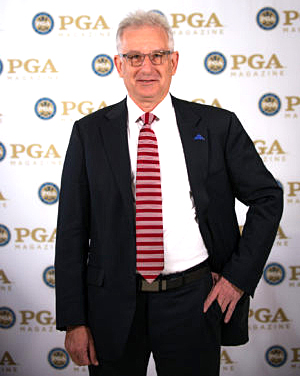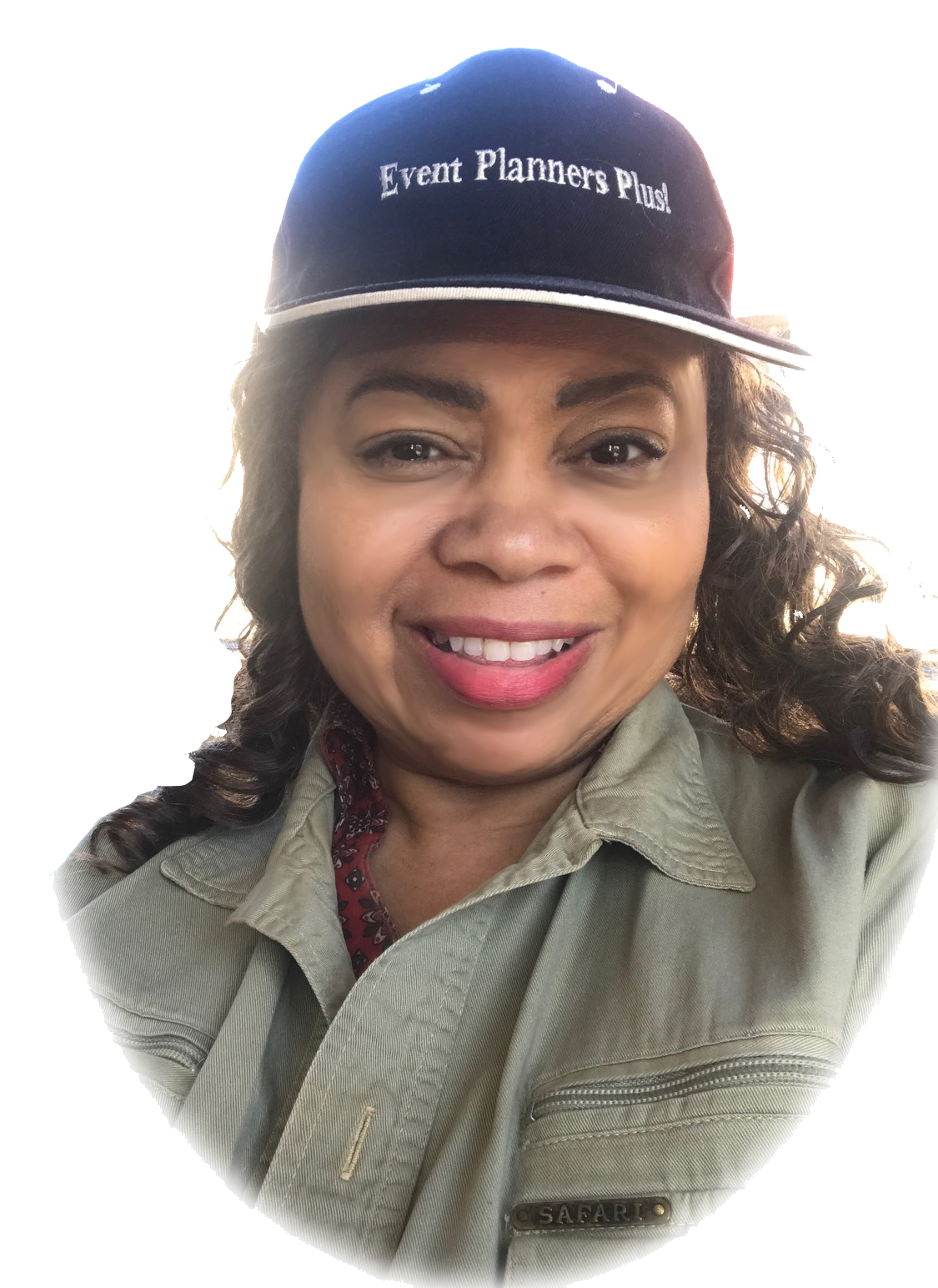July 28, 2020 | By Michael Cooper

I recently reached out to Rick Summers, a fellow member of the WE ARE GOLF Diversity Task Force and asked him several questions. Rick is highly regarded as a golf industry leader, who has been a successful entrepreneur for over 30 years.
He is the CEO and Publisher of PGA Magazine, publisher, and owner of the Golf Range Association of America, plus the owner and founder of Great Golf Resorts of the World, a publishing group based in Philadelphia. We can all learn from his industry knowledge and experiences.
QUESTION: Rick, how did you get into the golf industry as an entrepreneur, and how have you continued to be so successful?
Thanks Michael. I am old, so that first question could take a while to answer. I will give an abridged edition. Following college, I became a CPA for about six years. It was a great foundation, but accounting can be pretty dry, so after audits and tax returns. I was ready for a change. That led to my first entrepreneurial effort, where a young lawyer and I started and managed a cable television magazine startup on behalf of an investor group. In just six years, the magazine grew to 6,000,000 monthly circulation and then, in 1987, was successfully sold.

After a few months of “early retirement” I decided to launch a golf marketing and publication company: Great Golf Resorts of the World. I knew I needed a partner that could bring the company some real “golf” credibility and help me navigate a new industry. In an amazing series of fortuitous steps, I ended up being introduced to Jack Nicklaus, who liked the idea and we became partners. After about 15 years, I bought Jack’s shares in the company back.
Many years after the company was founded, In January 2001 we partnered with the PGA of America to assume the management of PGA Magazine, the oldest continuously published sports magazine in the country. The PGA has been a great partner and the magazine has prospered to become the country’s leading golf trade magazine. The reason: I have a great team of people that I work with – a team of innovators on my staff, and a dedicated and passionate readership of PGA Professionals, thousands of PGA Professionals that influence every aspect of the game across the country. Today, the company also includes over 150 events per year, digital publications and efforts, consumer golf publication partnerships with 10 of the country’s leading allied golf associations, e-commerce solutions, the Golf Range Association of America, … the list goes on.
The second part of your question asks how we’ve continued to be successful. I firmly believe that there are no easy businesses. I believe there is nothing more important than to get good people on the team, who care about what they do, and then to keep them. It took me years to figure this out (I’m still working on it) and I think it comes down to building the right culture.
Second, as a small company, we’ve worked hard to create outstanding partnerships – particularly with partners having solid reputations in the golf industry. We currently work with the PGA of America, the Metropolitan Golf Association, the Southern California Golf Association, the Northern California Golf Association, the Chicago District Golf Association, six other leading Allied Golf Associations, Reed Exhibitions, the NFL Alumni Association and others.
Third, we put PGA Professionals, our readers, and others ahead of our goals for making money. And after all of the above, we focus on our clients. Every one of those four concepts is based on maintaining long term relationships. All of them take time.
QUESTION: I reach a diverse audience of minority golfers and community-based program leaders. Several of them are business owners, looking to be more than consumers in golf’s $84 billion industry. What advice or words of encouragement do you have for them?
Opening advice: Find some solid mentors, build strong relationships, and prepare to be very patient. Secondly: Build a reputation for performance right from the start. Like every business, you need repeat customers, but you also need customers that love what you do for them. Golf’s tight community might seem like a barrier preventing easy entry (especially for the minority community), but if you find some early believers, that same tight community can become a great accelerator.
For minority golfers who are trying to introduce their businesses to the golf industry, it will certainly be a challenge (it is a challenge for every new business) and that is why early relationships and early success stories should be especially important.
As for words of encouragement, I have to be honest – COVID-19 is certainly going to make this a very difficult time to launch any new company. But with other activities largely shut down, the game of golf, overall, has been quite fortunate with people playing more golf than ever and the game seeing significant growth in the number of newcomers.
QUESTION: Rick, you volunteered to serve on the Diversity Task Force because you want to help grow the game and make it more inclusive. With that in mind, what are some of the diversity and inclusion opportunities you offer through your business ventures?
Obviously, we are a media company that speaks to an entire industry and therefore we have a responsibility to help tell the stories that must be told. Diversity and inclusion has always been an important story and we’ve covered it in virtually every one of our monthly issues of PGA Magazine. Bear in mind that PGA Magazine is owned by the PGA of America, so the stories we tell are very much a joint effort. Sandy Cross and her team at the PGA are actively involved in the process and their work has been very impressive. Our July 2020 double cover story issue featured the Black Lives Matter issue and the story extensively covered the renewed commitment that the PGA of America leadership announced to support driving change within the entire industry
We are going to continue covering diversity and inclusion in every monthly issue, so if your audience has diversity stories that would be relevant to PGA Professionals working at thousands of golf facilities across America – we want to hear about them.
In addition to PGA Magazine, we have also covered diversity regularly in front of over 1,000,000 avid golfers in 10 of the largest markets in America through the partnerships we enjoy with various Allied Golf Associations. That coverage includes through print and digital initiatives. We look forward to continuing these efforts as well.
Writing stories is important but we also are committed to changing things on a personal level. Three years ago, Tony Starks (then one of our editors and now a member of TaylorMade’s senior communications team) and I felt we wanted to do more. We began a series of PGA Magazine Diversity and Inclusion Dinners around the United States focused on bringing minorities who might be interested in a career in the golf industry together with those already in the golf industry to help drive minority employment.
Tony led dinners in Dallas, San Diego, Chicago, and New York, each that included 16-24 people. It is our own company’s small, grass roots effort to drive change through trying to help diversify golf’s workforce: at golf facilities, for golf manufacturers, and through non-profit organizations working in the game. We followed what has worked for us as a company: introducing people to each other and allowing them to discuss that golf needs to do better in changing our workforce. We also have to do better. These dinners have already resulted in four new job placements for minority candidates, so I am very pleased with the success to date. Tony and I are already planning an expansion of this dinner series in 2021.
In 2016 we strengthened our commitment to supporting the growth of women’s participation, which led to growing our Women Leaders Platform participation to more than 460 PGA woman members and 60 male PGA members working together. We conduct local meetings, single day summits and multi-day small group networking events, create a regular newsletter, meet at the Show and other tools to help public and private golf facilities to open up more opportunities for women to enjoy the game and others to succeed in the game.
These are only a few of the ways we are trying to bring about more inclusion. There are others. But I think I speak for every member of my team in saying that we are committed to not only continue in our present efforts but look forward to working with others on new ideas and efforts to see even more progress in the future.
QUESTION: What help can this audience and I lend to your efforts?
I think it is fair to say that none of the problems that black golfers have faced in feeling welcome at golf courses and finding jobs in the golf industry are going to see rapid change unless the entire industry participates. It is going to take the effort of many people working side by side. I am encouraged that over the past four to six weeks, following the murder of George Floyd and the protests that followed, that so many leaders in the industry announced: we know we must do better. Many have now committed themselves and their businesses or associations on the record to make change happen. If we all work together, I truly believe we can make a difference – in both the short and long term. And yes, I also need to learn more.
QUESTION: We seem to be at a crucible moment for race relations in America. What role can golf industry leaders play during this transformative period, and why is that important?
I certainly hope that everyone who considers himself or herself to be a golf leader, even those like me who lead a small company, realize that we must act and we must improve on our record on issues of race and inclusion in general. I honestly believe that progress has been made in the past. Today, there are millions of minorities who already love the game of golf and are counted as among the game’s customers – but now we have the opportunity to not only do much better but also realize that it can be a win-win. People follow the lead of other people, so it’s vitally important that every single person (leaders and others) stands up and helps to make the game more inclusive.
ABOUT MICHAEL COOPER, PH.D.
Dr. Michael W. Cooper is Chairman of the We ARE GOLF Diversity Taskforce and the former Director of Diversity for the World Golf Foundation/The First Tee. he is also past Assistant Dean/Campus Director for Springfield College-Tampa Bay campus. Contact him at mcooper2@springfieldcollege.edu.


